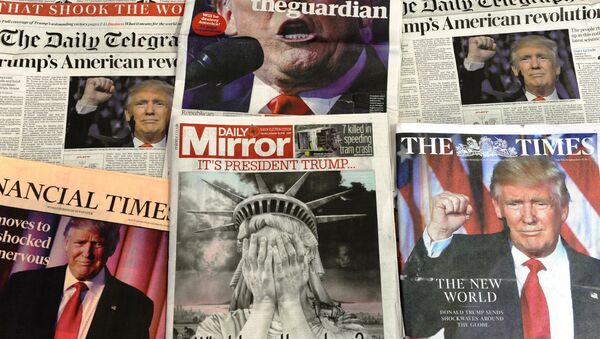NEW DELHI (Sputnik) — US President Donald Trump's inaugural speech delivered a big shock to India's $150 billion IT industry. It may bleed heavily if the US acts on its President's vow to "protect our borders from the ravages of other countries making our products, stealing our companies and destroying our jobs."
Nasscom, an IT industry representative body, is planning an air dash to the US to reach out to Donald Trump's team formulating outsourcing and visa policy for IT workers.
Though protectionism was anticipated, Indian authorities lived in denial till Trump made it clear in his inaugural speech. A week after Trump's election, Sputnik correspondent asked a senior member of India's apex policy advisory body whether Trump's policies would curtail outsourced jobs in India. And what would be the impact on the much touted "Make in India" policy? In response he had said, "Electoral campaigning is totally different from taking charge as US premiership. Trump will not choose the path he had promised during campaign."
Recent unemployment figures suggest that 14 per cent youth between 18 and 29 years were jobless despite seven per cent economic growth rate in the last couple of years. Annually, the organized sector managed to generate employment opportunities for only one percent of the total employable population.
In the last couple of decades, India's IT industry has commanded the biggest chunk of new entrants in the workforce. The Indian government made efforts to create jobs in the manufacturing sector by promoting a liberal licensing and approval policy but it is yet to find many takers.
The apex ideation body NITI Aayog's recent vision document has shifted its focus from the large manufacturing sector to infrastructure and service sectors for creating jobs. "Due to explosive and rapid improvement in technology, productions of goods and services have become highly mechanized. High mechanization spurts economic growth but does not result in commensurate employment generation," points out a study.
India's labor force is expected to expand by 160-170 million in 2020. Going by past trends of disconnection between economic growth, skilling, education and jobs will create an alarming situation. "Usually, high economic growth is associated with high employment growth in common wisdom, but in India's case, it is the other way round," the study admits.



